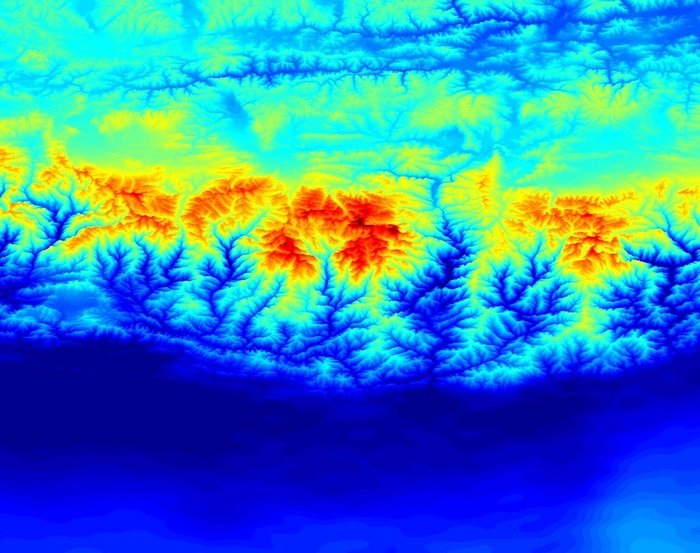Gravity map shows weakest gravity at summit of Mount Everest (middle.) Credit: GGMplus/Curtin University)
PERTH, Australia, Aug. 20 (UPI) -- Australian scientists say satellite and topographic data has provided the most accurate map of the variations in Earth's gravity at locations around the world.
The new high-resolution map shows fluctuations in gravity at different locations on Earth's surface are greater than thought, researchers at Curtin University in Perth in Western Australia reported.
Gravity is often assumed to be the same everywhere on Earth but varies because the planet is not perfectly spherical or uniformly dense, they said, and is weaker at the equator due to centrifugal forces produced by the planet's rotation and at higher altitudes further from Earth's center such as at the summit of Mount Everest.
High resolution gravity maps are important for civil engineering, they noted, because accurately constructing tunnels, dams and even tall buildings requires knowledge of the local gravity to guide GPS measurements of height.
Satellites have highly sensitive accelerometers that map the planet's gravitational field, but these are only accurate to within a few kilometers; adding in topographical data of height variations in local terrain yields a gravity map with higher resolution, the researchers said.
The map revealed unexpected locations with extreme gravity differences; Mount Nevado Huascaran in Peru has the lowest gravitational acceleration on the planet while the highest is at the surface of the Arctic Ocean, they said.
"Nevado was a bit surprising because it is about 1,000 kilometers [620 miles] south of the equator," research leader Christian Hirt said. "The increase in gravity away from the equator is more than compensated by the effect of the mountain's height and local anomalies."















